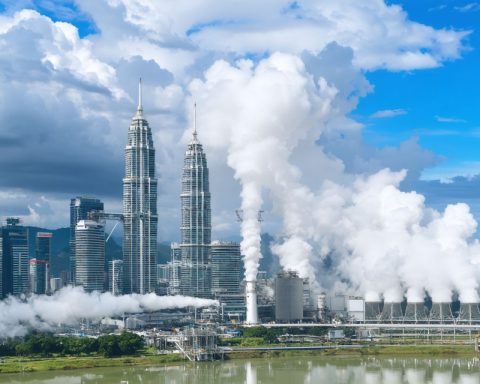Greetings to all esteemed participants and distinguished guests. Despite participating virtually, I am delighted to connect with everyone gathered in Foshan, a city recognized for its innovative strides in the hydrogen economy since 2016. Collaborating with the UN Development Programme, Foshan has been at the forefront of pushing China towards a sustainable and low-carbon future through hydrogen technology.
The urgency for addressing climate change has never been greater. As the planet faces unprecedented environmental challenges, natural disasters are occurring at thrice the frequency witnessed five decades ago. Additionally, global CO2 levels and temperatures continue to reach alarming peaks, with 2024 marking the hottest year on record. Every incremental rise in global temperatures exacerbates the frequency and intensity of climate phenomena like heatwaves and floods.
This scenario threatens the timely achievement of the Sustainable Development Goals (SDGs). Current progress suggests that the Asia-Pacific region might only reach these critical targets by 2062, three decades behind schedule. This highlights the pressing need to step up our global efforts.
As we approach the upcoming UN climate summit, it is imperative that our dialogues lead to tangible outcomes. Today’s focus on hydrogen technology and fuel cells, powered by renewable energy, is an integral part of this mission. These innovations hold transformative potential for reducing emissions in high-impact sectors such as transportation.
China’s commitment to hydrogen as a clean energy solution is crucial for global environmental efforts. Officially adopting the national hydrogen strategy in 2021 signifies China’s dedication to pioneering the low-carbon transition, capitalizing on hydrogen to revamp energy systems, and lead the global fight against climate change.
Hydrogen Economy: Transforming Lives, Communities, and Nations
The hydrogen economy is rapidly emerging as a pivotal force in the global shift towards sustainable and low-carbon energy solutions. Cities like Foshan, China, stand out as flag bearers in leveraging hydrogen technology. With the support of the UN Development Programme, Foshan’s efforts exemplify the potential of hydrogen in addressing the dire consequences of climate change, a reality that impacts people, communities, and countries worldwide.
The Impact on Individuals and Communities
For individuals, the transition to a hydrogen economy presents both opportunities and challenges. On one hand, it promises cleaner air and a reduction in pollution-related health issues, leading to an overall improvement in public health. However, concerns about the economic impact, especially in regions heavily reliant on fossil fuel industries, pose significant challenges. Workforce retraining and investment in new skill sets are essential to mitigate job losses and ensure communities can transition smoothly to new industries centered around hydrogen and renewable technologies.
In several communities, especially those in urban areas or industrial regions, hydrogen as a fuel source reduces the dependency on traditional energy sources. By offering a feasible alternative to gasoline and diesel, hydrogen technologies can transform local economies, fostering new industries and reducing carbon footprints, all while supporting cleaner, more sustainable urban living environments.
National and Global Implications
On a national level, countries investing in the hydrogen economy position themselves at the forefront of the next global energy revolution. For example, China’s comprehensive national hydrogen strategy highlights its commitment to crafting a sustainable future, looking to revamp energy systems and spearhead global environmental efforts. This strategic pivot is crucial as it impacts international collaboration, energy security, and economic competitiveness.
Globally, the rise of hydrogen economy strategies paves the way for international cooperation and policy advancements. As nations rally to curb carbon emissions, hydrogen technology offers a common platform to foster dialogue and partnerships aimed at combatting climate change. This collaboration is crucial, given that natural disasters, exacerbated by global warming, now occur three times more frequently than they did fifty years ago.
Fascinating Facts and Controversies
1. Energy Efficiency: Hydrogen fuel cells are celebrated for their high efficiency and low emissions when used correctly. However, the production of hydrogen itself can be energy-intensive, depending on the method used. While “green hydrogen,” derived from renewable sources, is the most sustainable, it remains less prevalent due to higher costs and technological barriers.
2. Infrastructure Challenges: A significant hurdle in transitioning to a hydrogen economy is the need for new infrastructures, such as hydrogen fueling stations and storage facilities. The cost and logistics of these developments pose a substantial challenge to widespread adoption.
3. Safety Concerns: Hydrogen’s volatility raises safety concerns that need to be diligently managed. While industry advancements continue, public perception often focuses on potential risks, thus requiring substantial investments in education and safety protocols.
4. Geopolitical Shifts: Countries rich in renewable resources or possessing advanced technology stand to gain significantly. This could alter existing geopolitical alliances and create new lines of economic influence centered around hydrogen production and technology.
For those interested in exploring more about the hydrogen economy and its global impact, consider visiting UN, IEA, or Hydrogen Europe for further insights and resources.
As we look towards future climate summits and global conversations, the role of hydrogen in creating sustainable energy solutions remains a critical topic. It offers hope for mitigating climate change impacts, but only if challenges are met with innovative strategies, cooperation, and unwavering commitment at all levels of society.


















